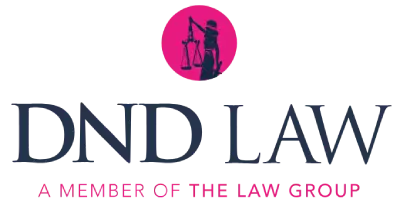The Business Tenancies (Northern Ireland) Order 1989 (often abbreviated as the “Business Tenancies Order”) governs the regulation of business leases in Northern Ireland. It outlines the legal framework for both landlords and tenants of commercial properties, primarily focusing on terms related to lease renewal, termination, rent review, and dispute resolution.
Guide to the Business Tenancies (Northern Ireland) Order 1989
Introduction to the Business Tenancies Order 1989
The Business Tenancies (Northern Ireland) Order 1989 consolidates and modifies the law governing business tenancies in Northern Ireland. It aims to provide fair protection to business tenants while also giving landlords the ability to regain possession of their property when necessary. The Order applies to leases of commercial properties, such as shops, offices, and industrial properties.
Key elements include:
- Rights of tenants to renew leases
- Grounds for landlord’s opposition to lease renewal
- Procedures for ending or altering lease terms
- Rent reviews and negotiations
Key Provisions of the Order
A. Security of Tenure
- Automatic Right to Renew Lease: A tenant who holds a qualifying business tenancy has an automatic right to request a renewal lease when the existing lease expires, subject to the landlord’s agreement or specific grounds for refusal (e.g., the landlord’s intention to redevelop or occupy the property).
- Termination of Lease: The tenant and landlord must follow a prescribed process when either party intends to terminate or renew the lease. The notice periods for termination vary based on the terms of the lease and the situation at hand.
B. Grounds for Refusal of Renewal
Landlords may refuse to grant a renewal lease on the following grounds:
- Landlord intends to occupy the property.
- The tenant has failed to comply with obligations (e.g., paying rent, maintaining the property).
- The property is to be redeveloped.
- The tenant is not a fit and proper person (i.e., they have engaged in anti-social behavior or criminal activities).
Landlords must provide evidence for these grounds in a timely and transparent manner.
C. Rent Review
The Business Tenancies (Northern Ireland) Order 1989 sets out guidelines for how rent reviews should be carried out in business leases. Rent reviews are typically designed to ensure that rents are adjusted to reflect market conditions. Disputes may arise over the interpretation of market rates, and the Order provides mechanisms to resolve these disputes through arbitration or court proceedings.
- Review Mechanism: Rent is usually reviewed at specific intervals during the tenancy. The new rent is determined by the open market rent at the time of the review.
- Dispute Resolution: In the case of disagreements over rent increases, the Order allows for arbitration or court proceedings to settle disputes. The process ensures that tenants are not unfairly burdened by unrealistic increases.
D. Lease Termination
- Notice of Termination: The tenant or landlord must provide adequate notice if they wish to terminate the tenancy. In most cases, a notice of at least six months is required.
- Grounds for Termination by Landlord: The landlord may terminate the lease by serving notice under various grounds such as default by the tenant, intended personal occupation, or redevelopment of the premises.
E. Renewal Procedure
- Tenant’s Request for Renewal: If a tenant wishes to renew a lease, they must request this in writing before the lease expires, typically 12 months before the lease’s end date.
- Landlord’s Response: The landlord must respond to this request in writing, indicating whether they are willing to renew the lease and, if applicable, the terms of the renewal.
- Negotiation: If the landlord and tenant cannot agree on the renewal terms, the matter can be referred to a court or arbitration to determine the new terms, including the rent.
F. Assignment and Subletting
- Assignment: Business tenants may have the right to assign the lease to a third party, but only with the landlord’s consent, which cannot be unreasonably withheld.
- Subletting: The tenant may sublet the property, but this may also require the landlord’s consent. The terms of the lease will typically define the specific conditions under which subletting can occur.
Termination by the Court
In certain circumstances, either party may apply to the Court of Appeal in Northern Ireland for an order regarding termination or the alteration of lease terms. This is typically used when disputes arise that cannot be resolved through negotiations or arbitration.
Key Procedural Steps for Landlords and Tenants
- Pre-expiration notice: Either party must notify the other of their intentions at least six months before the end of the lease. This is important for ensuring the lease continues or that any changes (such as rent increases) are discussed.
- Negotiation and Mediation: Landlords and tenants should try to resolve differences in rent reviews, lease terms, or the renewal process. Mediation is often preferred to avoid costly legal disputes.
- Arbitration: If an agreement cannot be reached on rent reviews or lease renewal, either party may request arbitration to resolve the matter.
Dispute Resolution Mechanisms
The Order also provides mechanisms for resolving disputes:
- Arbitration: A neutral arbitrator may be appointed to make decisions on disputes such as rent reviews or lease renewals. The arbitrator’s decision is binding, though in certain cases, a party may appeal to the court.
- Court Proceedings: In more complex cases, disputes may be taken to court, particularly if issues arise regarding termination, rent increases, or the grounds for lease refusal.
The Role of Legal Counsel
Given the complexity of the Business Tenancies Order and the potential for disputes, both landlords and tenants are encouraged to seek legal advice throughout the process. A solicitor with experience in commercial property law can guide parties through the renewal, rent review, and termination processes, ensuring compliance with legal requirements.
Conclusion
The Business Tenancies (Northern Ireland) Order 1989 provides a detailed framework to balance the rights and responsibilities of both landlords and tenants in commercial properties. Tenants are afforded significant protection, especially regarding lease renewals, while landlords retain the right to regain possession under specific conditions. By following the legal procedures outlined in the Order and seeking professional advice when necessary, both parties can navigate the complexities of business leases in Northern Ireland effectively.
At DND Law, we are specialist solicitors Newry, offering expert legal advice tailored to your needs. Whether you require Personal Injury Solicitors or trusted Solicitors in Newry, our dedicated team is here to help you every step of the way. Your legal success is our priority.

